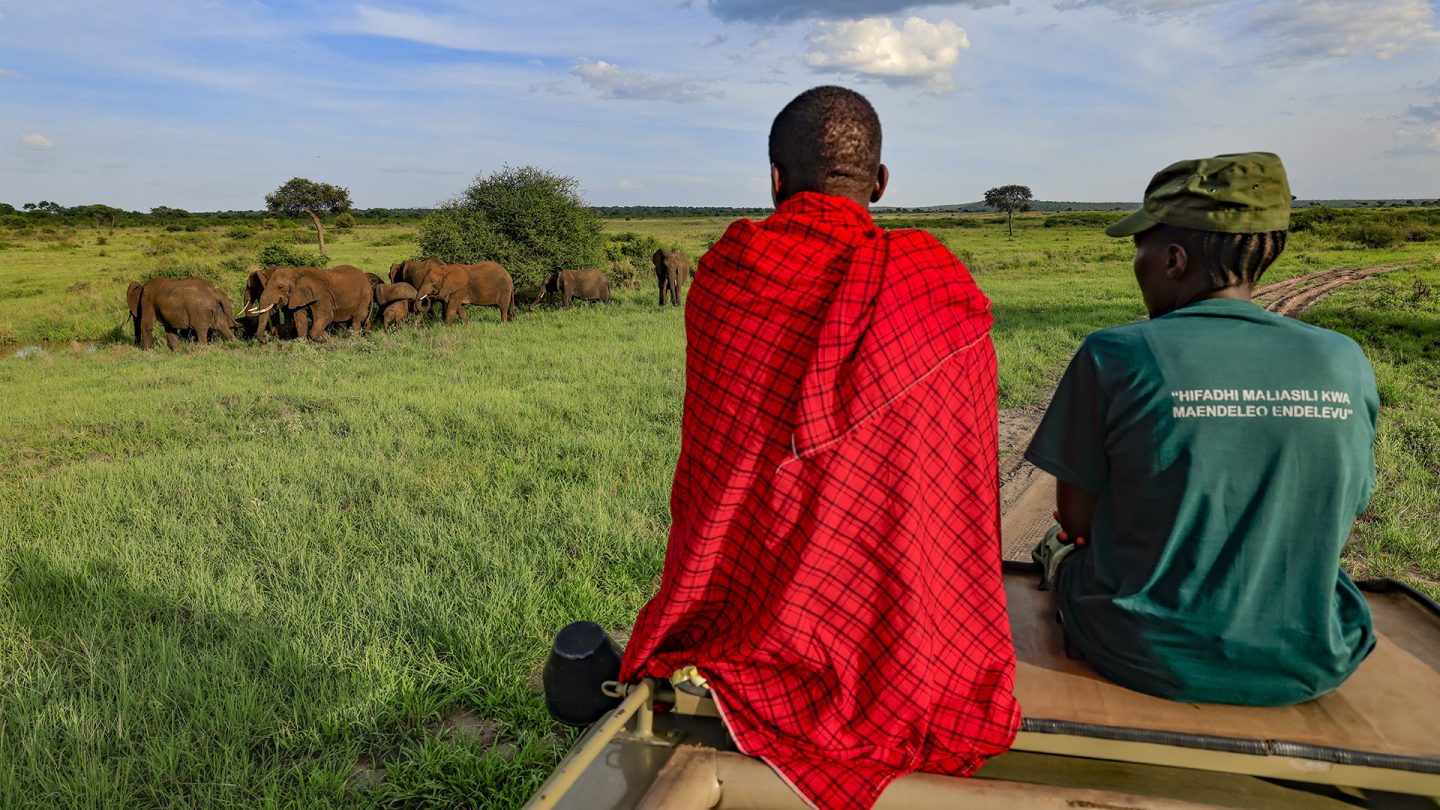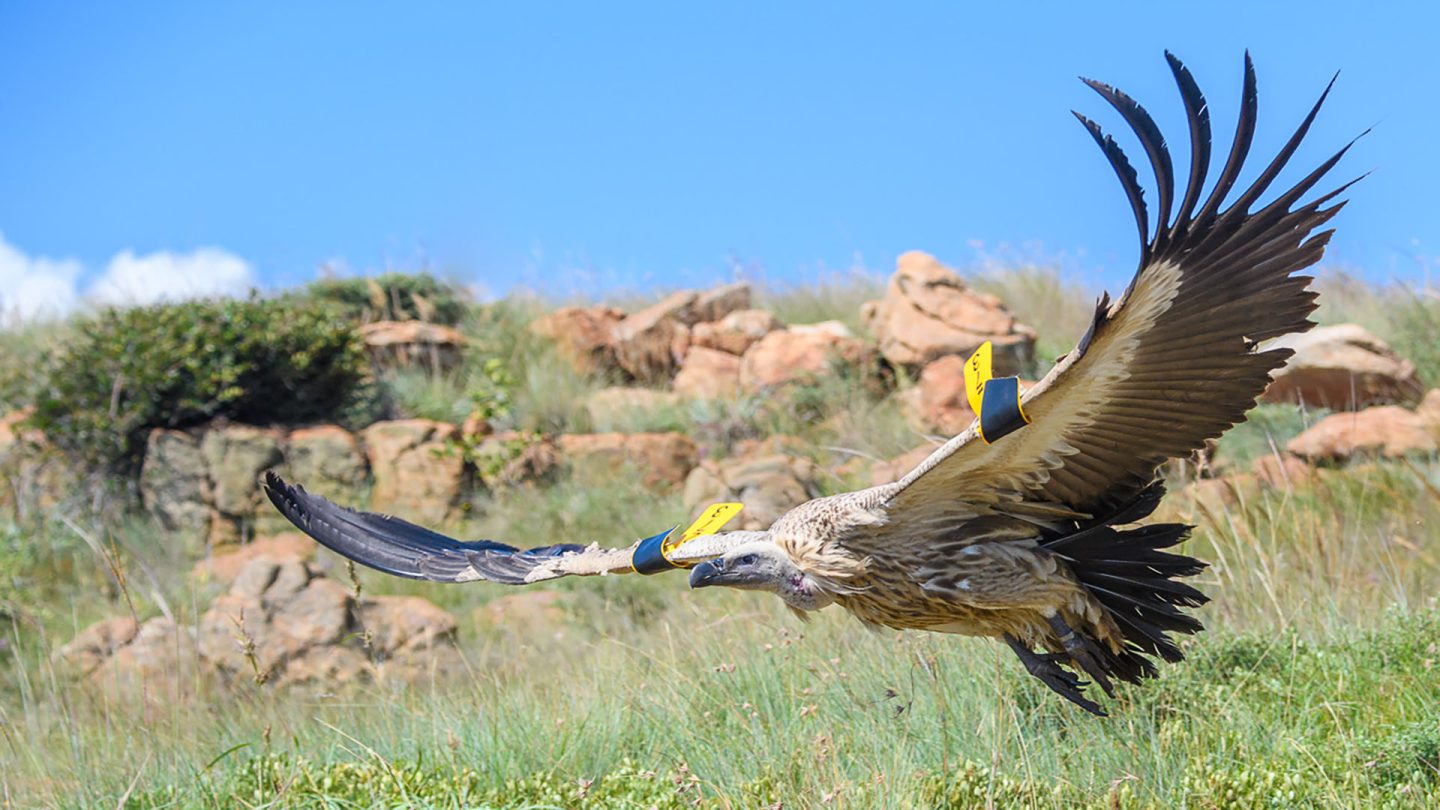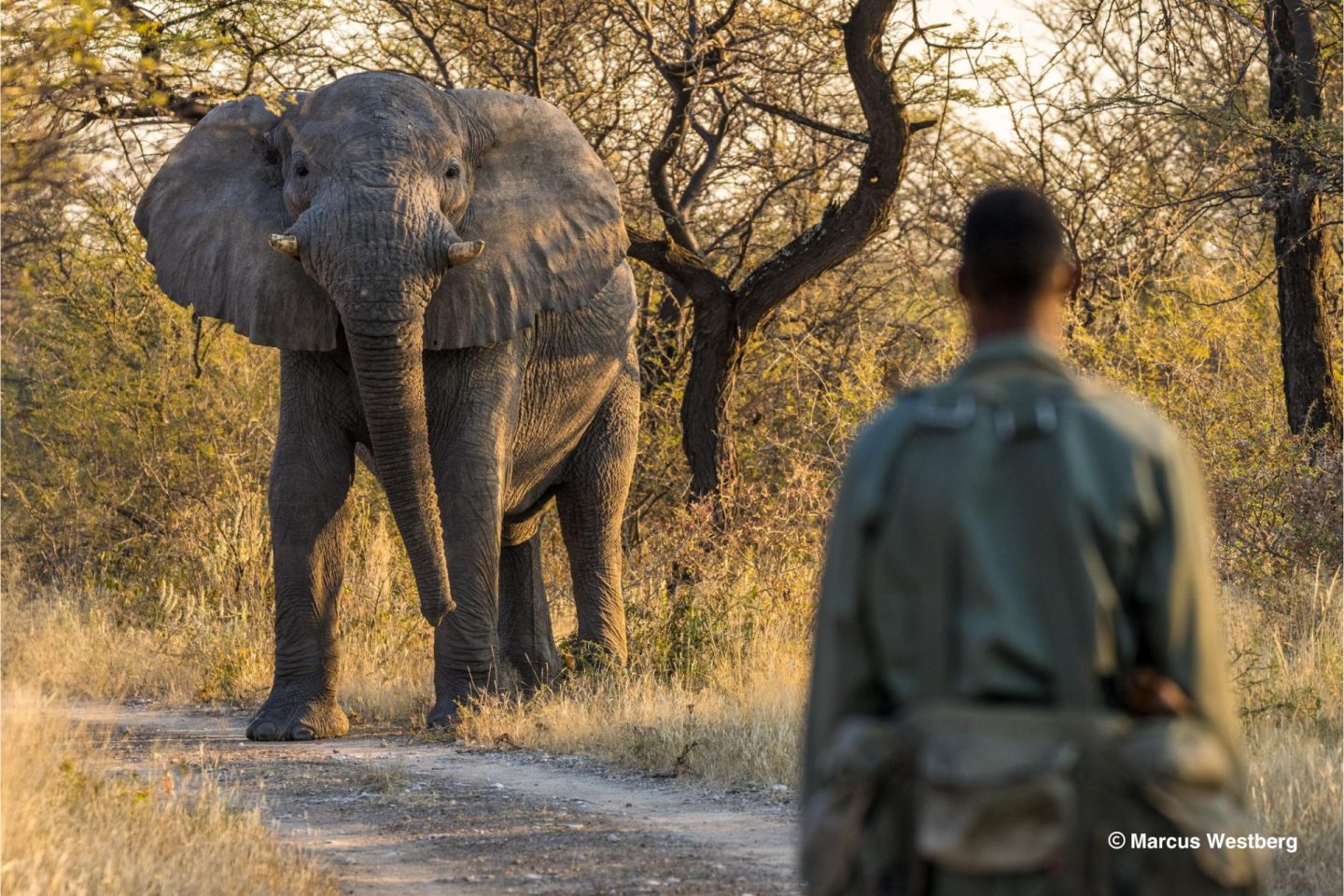
There is something about that morning air when you are sitting at a table looking across the Masai Mara, listening to the early morning chorus of birds in the forest calling out, inspiring the mind to think creatively. It was the perfect place for three organisations to bounce ideas off of each other. In a matter of days, those ideas would evolve from being a ramble in the mind to a clear vision of collaboration and a catalyst leading to big results.
In February 2022, Honeyguide attended the Tusk Trust Conservation Symposium in Masai Mara, Kenya. The symposium brought together African conservation leaders from across the continent and focused on building resilience in conservation. Over the course of the four days, we participated in workshops, training sessions, and presentations that highlighted high-impact leadership, strategic collaboration and communications, diversifying funding and creating opportunities from crises. The symposium created a space where we could network, connect, learn from, and, most importantly – collaborate with a diverse array of delegates. For Honeyguide and some select partners, this symposium was the catalyst for a major opportunity.
During the symposium, the Tusk Trust announced a collaboration grant of up to $2,000 for any collaboration efforts. It was during this morning’s discussion between Honeyguide and Lion Landscapes that we saw the chance to use this opportunity to leverage an additional +$2500 from each partner to equally contribute towards an application for a Biodiversity Protected Areas Management Program (BIOPAMA) grant that was worth over $160,000.
The funds put towards Tusk Trust’s initial grant brought us to a total of $10,000 to be used on a Site-level Assessment of Governance and Equity (SAGE). The main criterion for the BIOPAMA funding was that it would only be granted to actions addressing key management and governance issues identified by a quantitative management and governance assessment tool. This meant if we wanted to apply for this funding, we needed to do a SAGE fast!
As part of Honeyguide’s 2022-2026 strategic plan, there has been a shift in our ways of working with the creation of our partnership model. We know that the only way to achieve the greatest impact is to partner with like-minded organizations with pre-existing relationships with WMAs and are willing to work together to reach sustainability for them. Prior to the symposium, Honeyguide and the Southern Tanzania Elephant Program (STEP) established a partnership to work together in the Ruaha-Rungwa ecosystem, starting with MBOMIPA WMA.
One of the first steps in our governance process is to conduct a SAGE. The SAGE model is a simple, low-cost assessment tool for protected areas. Developed by the International Institute of Environment and Development (IIED), Honeyguide was one of the first organisations to pilot this methodology. The success of the pilot has led to SAGE being a part of our approach to governance. Also operating in the area is Lion Landscapes, an NGO focused on lion conservation and research, which was also in attendance at the Tusk Trust Symposium. Their Ruaha Carnivore Project has livestock protection, community benefit, and Lion Defender programs. With such closely aligned goals in the landscape, working with Mbomipa WMA in the area of governance was an opportunity for all.
The Honeyguide team members piled in the car and drove to Iringa, where they joined the STEP team and facilitated the 3-day SAGE workshop. The completion of this workshop ensured STEP and MBOMIPA WMA were eligible for the BIOPAMA Medium Grant. Over the next few weeks, STEP, with the assistance of Honeyguide, put together a proposal for 160,000 EUR, and after a few months of waiting for results, the good news arrived that the proposal had been accepted.
The Tusk Trust collaboration grant ignited a spark that started with just 10,000 EUR and ended with 160,000 EUR going towards building the good governance of the WMA. This just goes to show the power of putting funds together and working towards a common goal.



